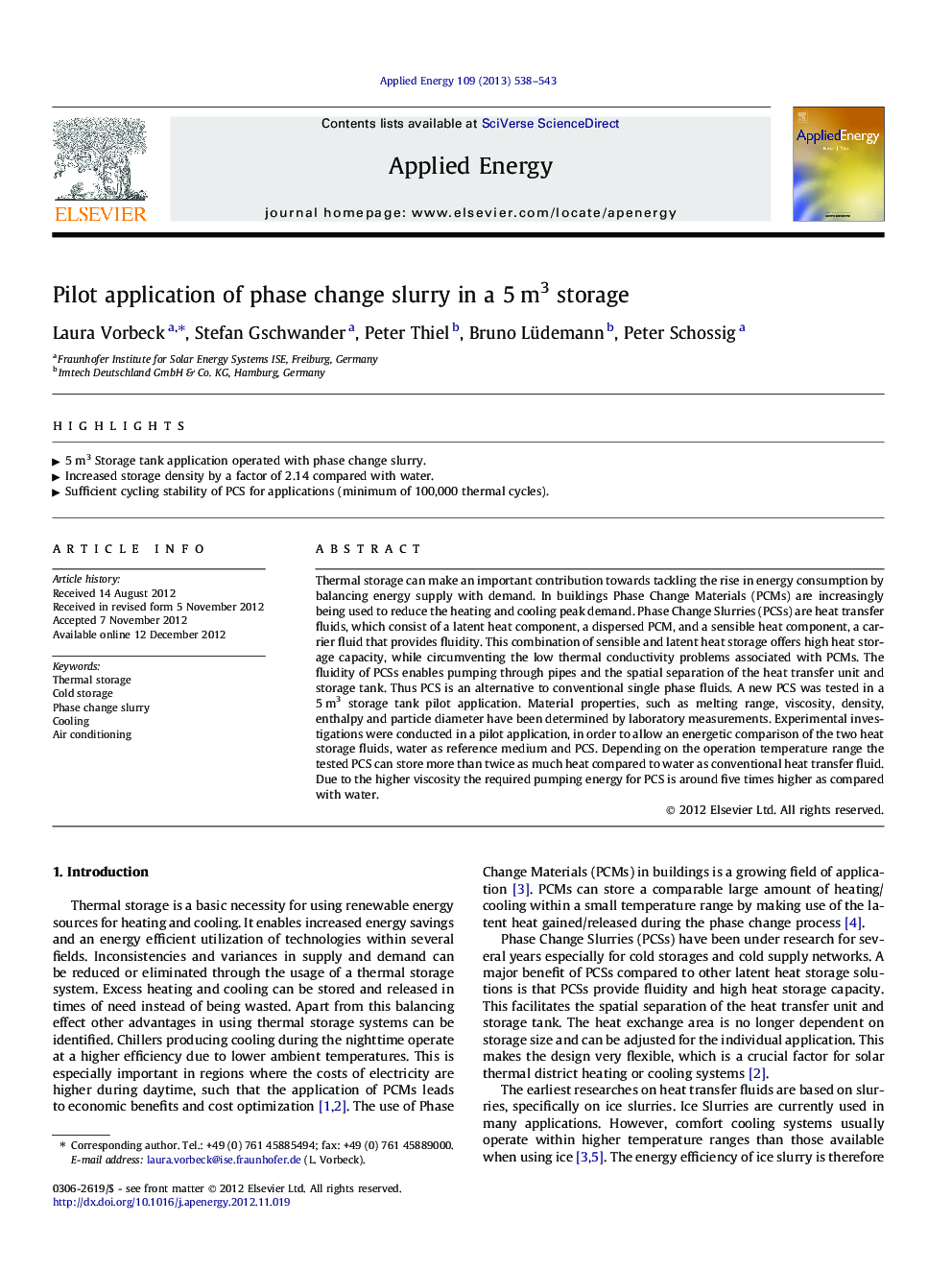| Article ID | Journal | Published Year | Pages | File Type |
|---|---|---|---|---|
| 243136 | Applied Energy | 2013 | 6 Pages |
Thermal storage can make an important contribution towards tackling the rise in energy consumption by balancing energy supply with demand. In buildings Phase Change Materials (PCMs) are increasingly being used to reduce the heating and cooling peak demand. Phase Change Slurries (PCSs) are heat transfer fluids, which consist of a latent heat component, a dispersed PCM, and a sensible heat component, a carrier fluid that provides fluidity. This combination of sensible and latent heat storage offers high heat storage capacity, while circumventing the low thermal conductivity problems associated with PCMs. The fluidity of PCSs enables pumping through pipes and the spatial separation of the heat transfer unit and storage tank. Thus PCS is an alternative to conventional single phase fluids. A new PCS was tested in a 5 m3 storage tank pilot application. Material properties, such as melting range, viscosity, density, enthalpy and particle diameter have been determined by laboratory measurements. Experimental investigations were conducted in a pilot application, in order to allow an energetic comparison of the two heat storage fluids, water as reference medium and PCS. Depending on the operation temperature range the tested PCS can store more than twice as much heat compared to water as conventional heat transfer fluid. Due to the higher viscosity the required pumping energy for PCS is around five times higher as compared with water.
► 5 m3 Storage tank application operated with phase change slurry. ► Increased storage density by a factor of 2.14 compared with water. ► Sufficient cycling stability of PCS for applications (minimum of 100,000 thermal cycles).
